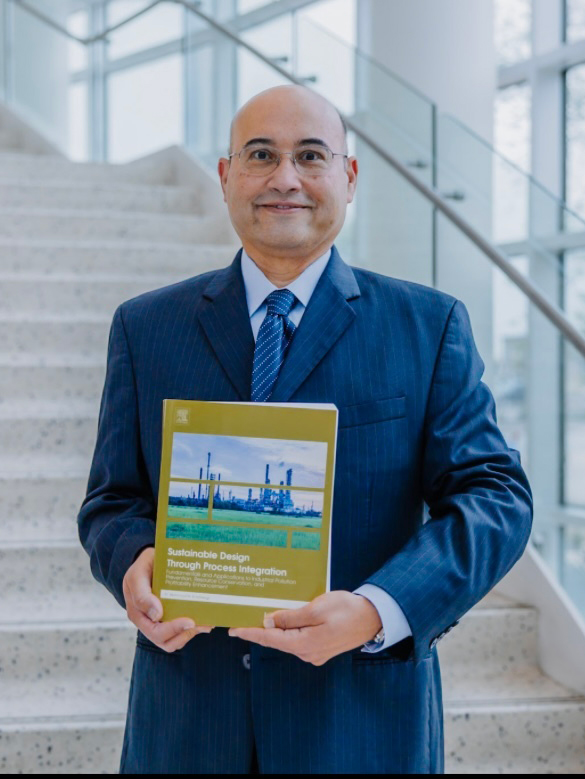Chemical engineering professor Dr. Mahmoud M. El-Halwagi has published a third edition of a textbook that explores how different systematic tools and techniques can be used to enhance the performance of manufacturing facilities and associated products and supply chains.

El-Halwagi’s book, ‘Sustainable Design Through Process Integration,’ looks at the need for sustainable development that accommodates the demands of the manufacturing sector for natural resources while leaving future generations with the opportunities to realize their potential.
“My position is that if you know what you're improving, if you're well equipped to do that you can improve the economic performance of the process because you're also enhancing efficiency, and inevitably, then mitigating waste and conserving resources,” he said.
El-Halwagi believes that it is possible to use the fundamentals of chemical engineering to develop highly applicable techniques and tools that will ultimately lead to best-in-class manufacturing.
According to the book, the top priorities for the process industries include enhancing profitability, increasing productivity, conserving natural resources, preventing pollution, and improving safety.
Although the process industries contribute much to economic growth and social development, they also consume tremendous amounts of natural resources and discharge wastes.
El-Halwagi suggests designing processing facilities with alternative engineering approaches.
“There are particular approaches with rigorous techniques that have been developed over the past four or five decades that were not available a couple of generations ago,” El-Halwagi said.
This alternative approach, which emphasizes the unity of the process, is referred to as process integration.
“Process integration can be used to systematically enhance and reconcile various process objectives, such as cost-effectiveness, yield enhancement, energy efficiency, and pollution prevention,” El-Halwagi said.
The first step is to identify the root causes of problems and significant opportunities, and next is to benchmark the performance of processes using fundamental approaches that look at the process as an integrated system while understanding the complex interactions of its components.
“To effectively make a substantial impact, it is inevitable for industry to embrace the concept of sustainable design,” El-Halwagi said. “The good news is that now they are available through research and can also be taught to students, so we can prepare the next generation of engineers to make transformative changes to the manufacturing sector while providing significant value to society."